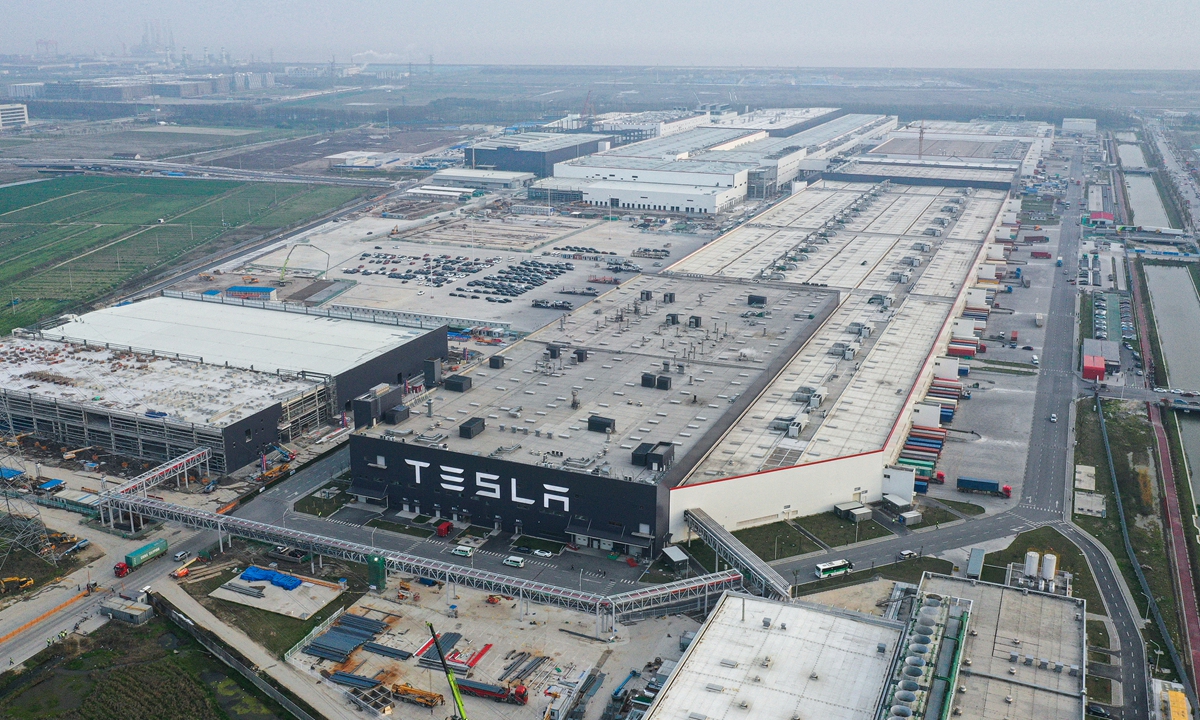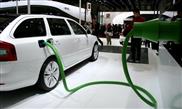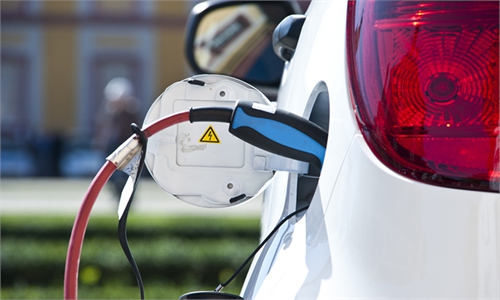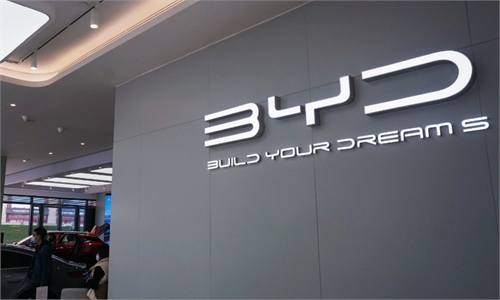Musk's optimism about China's EV market best rebuttal to Western badmouthing against Chinese economy

Tesla's Gigafactory in Shanghai Photo:VCG
An international auto show is scheduled from June 2 to 5 in Haikou, in South China's Hainan Province, as various regions of China have stepped up measures to boost car sales amid nationwide efforts to push economic recovery after the impact of Omicron. The major auto fair, where more than 100 car brands will showcase their vehicles with special exhibition for new energy vehicles (NEVs), signals a robust recovery of sales in the domestic auto market is getting started.
It is true that China's auto sector is among the most impacted industries due to the severe disruptions in the industrial supply chain and logistics caused by the ferocious Omicron wave in many cities, including economic powerhouse Shanghai and auto manufacturing hub Changchun. During the past couple of months, some car makers have faced challenges in maintaining stable production.
Unsurprisingly, the news of production suspension, adjustments on product prices and fluctuation of stock prices of car companies have all been used by some ill-intentioned Western media outlets to play up the negative impacts on the sector and badmouth China's economy. Citing sales drop data from industrial associations, Bloomberg claimed on Monday that "China's EV growth forecasts are starting to look shaky."
However, these Western hypes have apparently exaggerated the temporary difficulties encountered by the auto sector and China's overall economy. By distorting the facts, the hypes all serve the reckless attacks on China's dynamic zero-COVID policy and the country's economy, which are doomed to fail.
In fact, the difficulties encountered by domestic and foreign auto brands in China during this wave of the virus are far less serious than the alarmist warnings by Western media outlets. Some auto manufacturers in China have only encountered brief suspension of production. Their rapid response actions have minimized the impact of the epidemic and production has not been greatly affected.
After production resumed on April 19, Tesla's Shanghai Gigafactory delivered the first batch of electric vehicles (EVs) on May 11. From January to April, it had an output of 183,686 vehicles, an increase of more than 1.7 times compared with the same period last year.
Furthermore, China is actively introducing support measures to promote the rapid recovery of the automotive industry, especially on NEVs. China's Ministry of Finance said on Monday that the next step is to implement the fiscal subsidy policy for the NEV industry to promote its high-quality development.
While Forbes on Monday claimed that "China's COVID-19 policy is costing it foreign investors' confidence," Tesla's CEO, Elon Musk, reiterated on Monday his confidence in China's market. "Few seem to realize that China is leading the world in renewable energy generation and electric vehicles. Whatever you may think of China, this is simply a fact," Musk posted on Sina Weibo on Monday.
The economic logic behind Musk's speech reflects the resilience of China's economy. Although China's overall economy and the auto sector have encountered temporary difficulties in April, as the rapidly launched policy to promote car sales comes into effect, the auto sector is set to rapidly rebound. Additionally, advantages in the new energy sector represent the solid foundation and great potential of the second largest economy.
China's vehicle industry, especially the NEV sector, is a window to observe China's economy which will realize a strong recovery soon. Musk, as a businessman, understands China's economy better than American politicians and his observations is the best rebuttal to Western slandering against China's economy.
The author is an editor with the Global Times. bizopinion@globaltimes.com.cn



